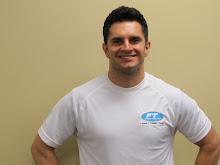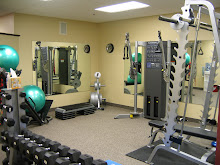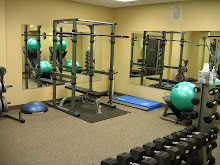
Q: Is 8 hours of sleep each night really necessary?
A: Almost every sleep physician recommends adults sleep for 7 to 8 hours every night. But everybody is different, according to Dr. Neil Kline, a sleep physician and representative for the American Sleep Association. "You need what you need," says Kline. "Some people may only need 6 hours, while others won’t function as well unless they get 8. There isn’t one specific amount of sleep that every person needs."
If you feel drowsy during the day—at work, in the car—you’re not getting enough sleep, Kline says. It’s as simple as that. If you’re still unsure how many hours your body needs, make it a goal to lay your head for 7 to 8 hours a night to guarantee optimal mental and physical performance.
Q: Do I benefit from the extra few minutes of sleep I get by hitting "snooze"?
A: Only if they give you a chance to finish up a cool dream. "It's unlikely that the extra 10 to 15 minutes will make a dent in your nightly sleep deficit," says Gerard T. Lombardo, M.D., director of the Sleep Disorders Center at New York Methodist Hospital. Chances are, that deficit is growing: According to the National Sleep Foundation, Americans are sleeping 6.9 hours per night—much less than the 8 hours usually needed for good health.
The desire to hit "snooze" comes from the instant reaction that drives you to shut off whatever blaring monstrosity just invaded your deep, peaceful sleep. May we suggest a more genteel alternative? Rather than scare you out of bed, a Zen alarm clock ($100, now-zen.com) uses a gradual series of chimes to rouse you, leaving you less groggy.
Q: What if my schedule only allows for 5 to 6 hours of sleep each night?
A: Sleep is a basic biological need, so there’s nothing—not caffeine, not exercise—that can replace it. "Most adults need at least 7 hours of nighttime sleep," says Dr. Mary Susan Esther, president of the American Academy of Sleep Medicine. "But if your schedule doesn’t allow that, break sleep up into parts (five hours at night and a daytime nap)." It’s almost as beneficial.
Chances are if you only have time to sleep 5 or 6 hours a night, a daytime nap is improbable. Stick to your shorter sleep schedule during the week, and pay back the debt on Saturday or Sunday. While sleeping in on weekends can disrupt your sleep-wake cycle and result in more fatigue, it’s still better to replace the sleep you miss during the workweek than to continue accumulating a sleep deficit. "It’s not ideal to wake up at 6 a.m. during the week and sleep until 10 a.m on weekends, but getting sleep [even in odd fragments] is always better than the alternative," says Dr. Esther.
Q: Why do I wake up 2 minutes before my alarm goes off?
A: Your body has an internal clock (circadian rhythm) that adapts to sleep and wake patterns. "People like the assurance that an alarm is going to be there, but we have the ability to set our own mental alarm," says Dr. Esther. It may not be exactly to the minute, but numerous sleep studies show that people can condition themselves to wake up at certain times without the blaring buzzer.
Train your internal clock by going to sleep and waking up at the same time for 7 days straight.
Q: What is the best way to make up for a sleepless night?
A: "The only way is to catch up on that sleep," says Dr. Kline. "You’re going to need to pay back that sleep debt." You can choose to be miserable until it’s paid off, or you can find some free time and a dark corner to curl up for a nap.
Caffeine can postpone the inevitable for some time, but no chemical will replace good sleep—eventually you’re going to need to crash. Everybody has the occasional bad night—it’s no cause for concern. Just try to wind down a little bit earlier the next night to get back on track.
Q: When is sleep a symptom that something more serious may be wrong? A: Chronic daytime sleepiness—drowsiness that goes on for more than two weeks—is the number one sign that you may have a sleep disorder, says Dr. Kline. Sleeping too much or too little is a symptom of a variety of health problems such as depression, anxiety disorders, or a thyroid problem.
If you’re concerned about your sleep hygiene, discuss symptoms with your primary care physician. He or she will determine if an appointment with a sleep specialist is necessary.
Q: What goes on in my brain while I’m out cold?
A: Sleep is an active process. "You don’t just relax and let yourself sleep," says Dr. Esther. "There is a complex biological system at work while you’re sleeping." So complex, in fact, that scientists still don’t know exactly what goes on when we’re out cold.
But one thing is certain: Sleep is restorative. Our bodies release certain chemicals when we’re asleep that help promote good heath and strengthen the immune system. This is especially true during rapid eye-movement (REM) sleep. Brain scans of people experiencing REM sleep show activity comparable to that of being awake. This is why Dr. Kline warns against pulling an all-nighter. "It is much better to get the benefits of sleep, than to study [or work] through the night."
Originally from Menshealth.com (http://www.menshealth.com/spotlight/sleep/q&a.php)
Edited from Jason Copeland, CSCS









No comments:
Post a Comment